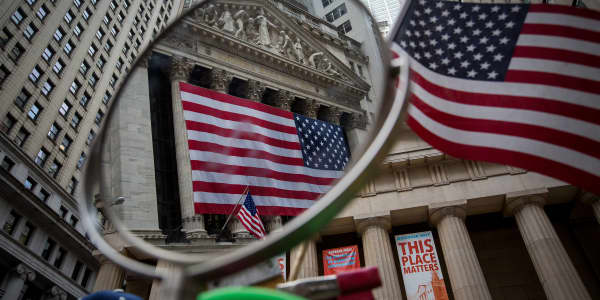The last five years have been challenging for the U.S. economy. With unemployment high and institutional trust low, many young people have chosen to walk the path of entrepreneurship. Some have failed in their endeavors, but many that encountered broken systems have found opportunities to change industries. As an entrepreneur, I meet them often. I believe that young people are turning the financial crisis and the slow economy into a golden age of entrepreneurship.
Consider this: Today's college-educated 30-year-old graduated in 2006. At the time, they'd had Facebook for a year or two, depending on where they went to school. As they were trying to figure out their first job, they were conscious of the fact that the fun platform they used to check out classmates was actually a business founded by someone just like them. Not only could they relate to the story, the online discussion amplified a collective can-do attitude and served as a built-in support network at the same time. Then, a few years later, 2008 happened. And I'd argue it was a blessing in disguise. If not for the crisis, many of the best and brightest millennials would have gone to Wall Street or big consulting.
Let's look at a few young entrepreneurs who are changing the game—and the trends that have allowed them to do so.
The idea that one could conceive of an idea and start a real business while still in college was simply not the norm for the majority of the 20th century. The well-known examples are scant but include TIME, FedEx, Microsoft, Dell, Google and Napster. Now the low cost of launching a business online has made it much easier for young people to start businesses.
(Read more: Have an MBA? Now launch a company)
With unemployment high and institutional trust low, many young people have chosen to walk the path of entrepreneurship.Ari JacobyCEO of Solve Media
Take Nikhil Sethi, CEO and co-founder of New York City–based start-up Adaptly. He and his business partner started the company in 2010, when they were still undergraduates at Northwestern University. Nikhil is helping brands such as Kraft and Pepsi optimize social advertising. Adaptly has raised close to $13 million from some of the best investors in the business, and the company is now expanding globally.
Today's technology affords entrepreneurs a pace of innovation that their parents couldn't dream of, and a real-time feedback loop that makes it reasonable to ship code multiple times a day. Jude Gomila, co-founder of Heyzap, comes to mind. He and his business partner built their business idea out of a love of video games rooted in their childhood. Steeped in their industry both personally and professionally, these founders saw the mobile gaming trend from the get-go and knew intuitively that it wouldn't take long for the market to catch up. Now Heyzap is changing the way people play games together.
The Internet—and social media, more specifically—have accelerated the self-motivation "function" in the right set of people. Katia Beauchamp is co-CEO of Birchbox, one of the fastest-growing e-commerce companies in New York City. Inspired by an early love of beauty products, Katia and Hayley Barna—her Harvard Business School classmate and business partner—pioneered a subscription commerce business that brings sample-size products to hundreds of thousands of subscribers each month. Many other companies have followed in Birchbox's path: Retail is being recreated right before our eyes.
I've founded and sold two companies, and I'm on my third now. In late 2009 my business partners and I noticed rising trends in bot fraud affecting publishers and hurting ad effectiveness. We went on to build Solve Media. Our technology allows people to type simple words that actually make sense—randing messages—into captcha security boxes. (Consumers fill out captcha boxes to prove they are people, not automated "bots"). Today I believe we're the only company in the world willing to guarantee the success of online and mobile brand advertising campaigns.
(Read more: The world's hot start-ups)
The more young people succeed in starting businesses, the more others will follow. Thanks to the risk-takers who struck out on their own over the past five years, being an entrepreneur is now seen as a viable path to success. One sign is the number of businesses yet to be born: In a 2011 survey conducted by the Young Invincibles in conjunction with Lake Research Partners and Bellwether Research (and funded by the Ewing Marion Kauffman Foundation), 54 percent of millennials said they had started or wanted to start a business.
In another, and better, economy, young people could have followed classmates to Wall Street or big consulting firms. I'm glad we didn't. The value being created by young entrepreneurs will make up for the impact of 2008. We're in a golden age for entrepreneurship, where risk-taking is less risky and young entrepreneurs have more confidence than ever before.
—By Ari Jacoby. Jacoby is CEO of Solve Media, an advertising technology firm based in New York City.




